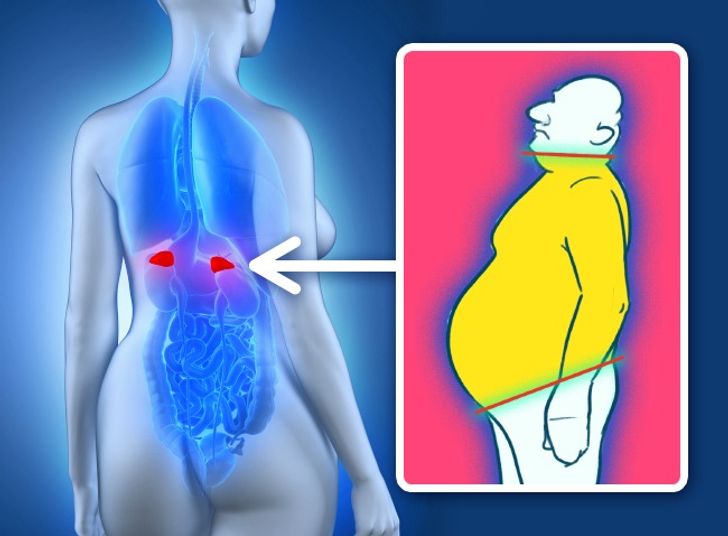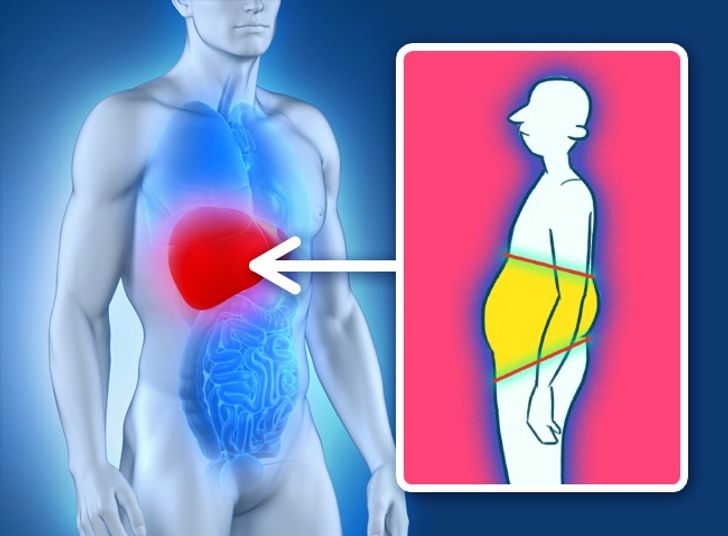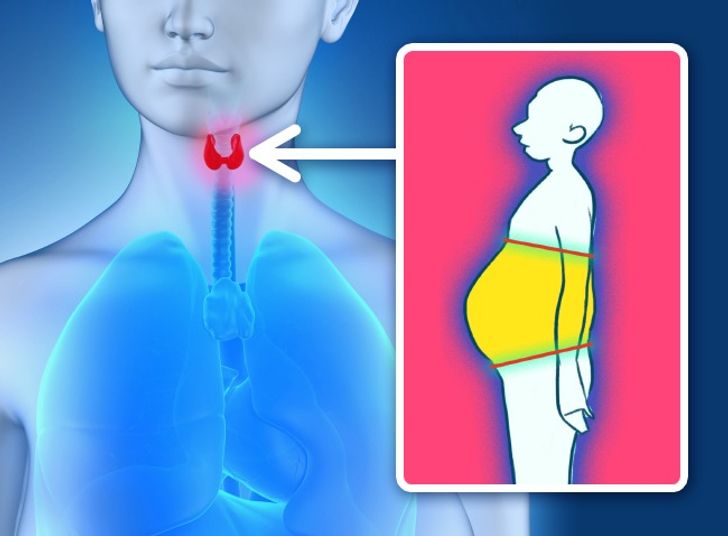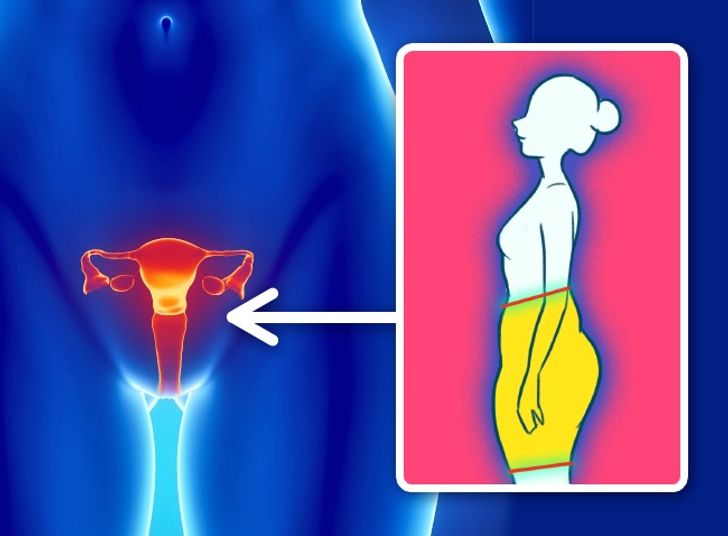Excess weight gain can be a complex and frustrating challenge. While traditional advice focuses on calories in versus calories out, there are underlying physiological factors that often fly under the radar. In this article, we explore four not-so-obvious reasons for weight gain—focusing on the roles of the adrenal glands, liver (hepatic), thyroid, and ovaries. By understanding how these internal systems influence metabolism and fat storage, you can better tailor your weight loss and healthy lifestyle strategies. Read on to discover expert insights, actionable tips, and trusted external resources to help you regain control over your weight management journey.
Reasons for Excess Weight Gain
Adrenal Weight Gain: How Adrenal Fatigue Impacts Your Metabolism

The adrenal glands, small but powerful, are responsible for producing hormones that regulate stress and metabolism. When these glands become overtaxed—often due to chronic stress or poor sleep—they can lead to a condition known as adrenal fatigue. This imbalance may result in elevated cortisol levels, a hormone that can promote fat storage, particularly around the midsection.
Understanding the Connection:
Cortisol, often referred to as the “stress hormone,” plays a crucial role in managing your body’s response to stress. Elevated cortisol levels not only increase appetite but can also lead to insulin resistance, making it more difficult for your body to burn fat effectively. This phenomenon can create a vicious cycle where stress leads to weight gain, which in turn causes more stress.
Expert Tips for Managing Adrenal Weight Gain:
- Stress Management Techniques: Incorporate mindfulness, meditation, and regular physical activity to help manage stress.
- Balanced Diet: Focus on whole foods, lean proteins, and healthy fats to support adrenal function.
- Sleep Hygiene: Aim for 7-9 hours of quality sleep each night to help regulate cortisol levels.
For more in-depth information on adrenal fatigue and its effects on weight, consider reading the Mayo Clinic’s guide on stress and health.
Hepatic Weight Gain: The Liver’s Crucial Role in Metabolism and Weight Management

Often overlooked, the liver is a metabolic powerhouse that plays a central role in processing fats, detoxifying harmful substances, and regulating blood sugar levels. When liver function is compromised—due to factors like excessive alcohol consumption, a high-sugar diet, or certain medications—its ability to process fats efficiently can decline, contributing to weight gain.
How Liver Health Affects Weight:
The liver is integral to fat metabolism. A sluggish or overburdened liver may not effectively break down fats, causing them to accumulate in the body. Moreover, poor liver function can disrupt the balance of hormones and enzymes that are essential for regulating metabolism.
Strategies to Support Liver Health:
- Nutrient-Rich Diet: Emphasize foods rich in antioxidants, such as berries, leafy greens, and cruciferous vegetables, which can help protect liver cells.
- Moderate Alcohol Intake: Limiting alcohol consumption can reduce the burden on your liver.
- Regular Exercise: Physical activity boosts overall metabolism and supports liver detoxification processes.
For further reading on liver health and weight management, check out the American Liver Foundation’s resources.
Thyroid Weight Gain: Unraveling the Connection Between Thyroid Function and Metabolism

The thyroid gland is a small, butterfly-shaped organ that exerts significant control over your metabolism. When the thyroid does not produce enough hormones—a condition known as hypothyroidism—metabolic processes slow down, often leading to unexplained weight gain. Even subtle imbalances can disrupt your body’s energy regulation.
Thyroid Function and Weight Regulation:
Thyroid hormones are critical for the conversion of calories into energy. In a hypothyroid state, your metabolism slows, making it easier for the body to store fat, even if your diet and exercise routine remain unchanged. Recognizing thyroid issues early can be key to addressing weight gain and other related symptoms.
Effective Management Tips for Thyroid-Related Weight Gain:
- Regular Screening: If you suspect thyroid dysfunction, consult your healthcare provider for appropriate tests and evaluations.
- Diet Considerations: Certain nutrients, including iodine, selenium, and zinc, are essential for thyroid health. Incorporate foods like seafood, nuts, and dairy into your diet.
- Medication Compliance: If diagnosed with hypothyroidism, adhering to your prescribed medication regimen is critical for restoring normal thyroid function.
To learn more about thyroid health and its connection to weight, refer to Harvard Health Publishing’s overview on thyroid disorders.
Ovarian Weight Gain: Hormonal Imbalances and the Impact of PCOS

For many women, the ovaries are more than just reproductive organs—they are also key players in hormonal balance. Conditions like Polycystic Ovary Syndrome (PCOS) can lead to significant weight gain and difficulty losing weight. PCOS is characterized by hormonal imbalances, including elevated levels of androgens (male hormones), which can disrupt insulin sensitivity and lead to increased fat storage.
The Role of Ovarian Hormones in Weight Regulation:
The menstrual cycle and ovarian hormones, such as estrogen and progesterone, influence fat distribution and metabolism. When these hormones are imbalanced—as in PCOS—the risk of weight gain, particularly around the abdomen, increases. Additionally, insulin resistance, which is common in PCOS, further complicates weight loss efforts.
Management Strategies for Ovarian Weight Gain:
- Medical Intervention: Seek guidance from a healthcare professional for diagnosis and treatment options for PCOS.
- Nutritional Approach: A low-glycemic, high-fiber diet can help improve insulin sensitivity and reduce weight gain.
- Regular Physical Activity: Exercise not only aids in weight loss but also helps regulate hormonal balance.
- Stress Reduction: Techniques like yoga and meditation can be particularly beneficial in managing hormonal stress.
For additional insight into PCOS and its effects on weight, visit the Centers for Disease Control and Prevention’s (CDC) information page on PCOS.
Integrating These Insights Into a Comprehensive Weight Management Plan
Understanding that excess weight gain is not solely about diet and exercise is the first step toward more effective weight management. The adrenal glands, liver, thyroid, and ovaries each play unique roles in regulating your metabolism and fat storage. By addressing these underlying factors, you can create a more holistic approach to weight loss that goes beyond simple calorie counting.
A Multifaceted Approach to Weight Management:
Adjustments to medications and treatment plans may be necessary over time to optimize your health.
Holistic Health Assessment:
Begin by consulting with a healthcare provider to identify any hormonal imbalances or underlying conditions that might be contributing to weight gain.
Regular screenings for thyroid function, liver health, and reproductive hormones can provide critical insights.
Personalized Nutrition Plans:
Tailor your diet to support organ health and hormonal balance. Incorporate high-fiber foods, lean proteins, and nutrient-dense vegetables.
Consider consulting with a registered dietitian to develop a plan that meets your specific needs and addresses any metabolic or hormonal issues.
Regular Physical Activity:
Integrate both cardiovascular exercises and strength training into your routine. Exercise helps boost metabolism, improve insulin sensitivity, and support overall organ function.
Consistency is key—aim for at least 150 minutes of moderate-intensity exercise per week.
Stress Management and Sleep:
Prioritize stress reduction techniques such as meditation, deep breathing, or yoga.
Ensure you maintain a regular sleep schedule to help regulate hormone levels and support metabolic health.
Medical Support and Monitoring:
For those with diagnosed conditions like hypothyroidism or PCOS, ongoing medical treatment and monitoring are essential.
Conclusion
Weight gain is a multifaceted issue that requires a comprehensive understanding of how various bodily systems contribute to fat accumulation. The adrenal glands, liver, thyroid, and ovaries each have unique roles in managing metabolism, hormone balance, and overall energy regulation. By acknowledging these not-so-obvious reasons for weight gain, you empower yourself to make informed decisions about your health.
Implementing a holistic approach—one that includes proper nutrition, regular exercise, stress management, and medical support—can help you overcome these challenges. Whether you’re dealing with adrenal fatigue, liver dysfunction, thyroid imbalances, or ovarian issues, understanding the root cause is key to creating an effective and personalized weight management plan.
Remember, the journey to a healthier lifestyle is not one-size-fits-all. Embrace the complexity of your body’s needs and leverage expert advice and trusted resources along the way. With determination, informed strategies, and the right support, you can achieve sustainable weight loss and improved overall well-being.
For more expert advice on health and wellness topics, subscribe to our newsletter and join our community of readers who are transforming their lives through knowledge and action.
Based on materials from estet-portal.com









